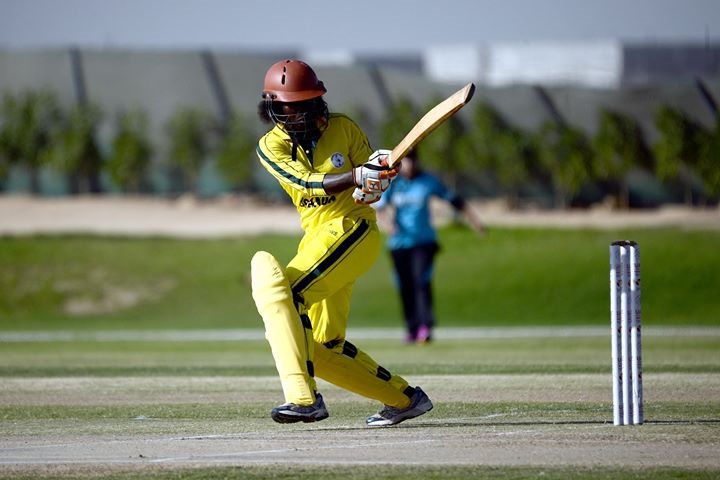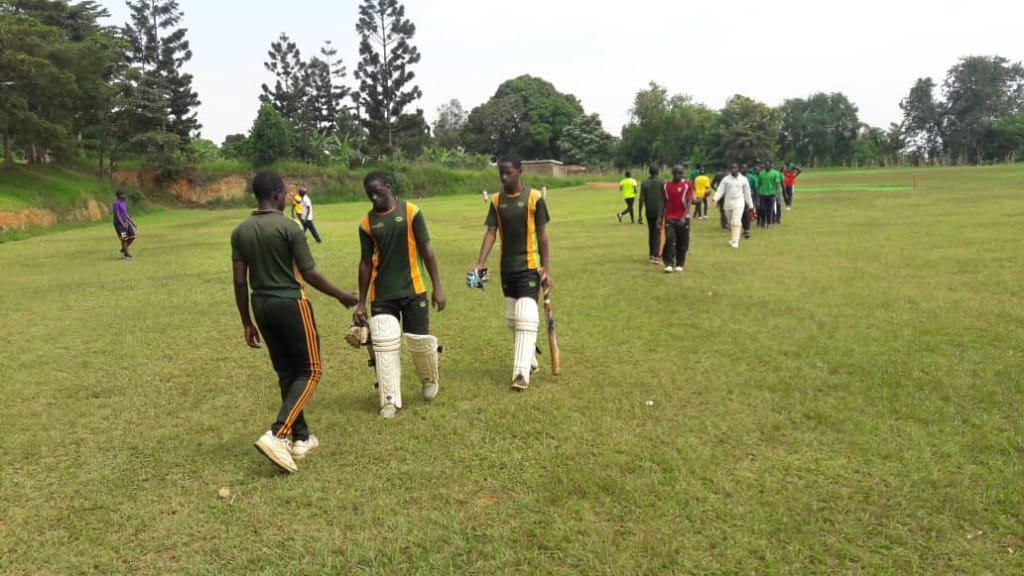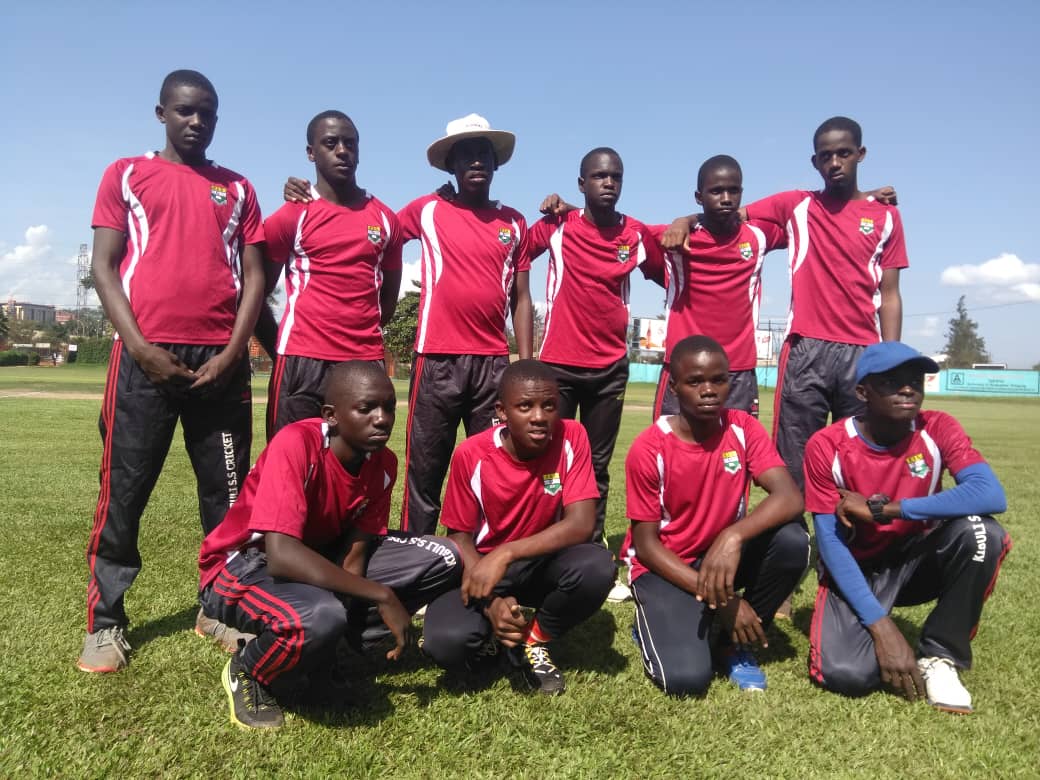By Denis Musali
Kibuli SSS is more famous as a football giant but they used to be a cricket mad school. One of the hosts of the annual school's cricket week in the 1990s till the early 2000s Kibuli flexed muscle with the traditional cricket schools such as Busoga College Mwiri and Kings College Budo. They have produced great talents such as the Kibuuka Musoke brothers Jeremy and Cyrus, Dr. David Musoke, Musa Ntanda, Abdu-Wahab Nyanzi, Kenneth Legesi, and former lady cricket cranes captain Barbara Mukankusi.
Despite not winning the school's cricket week Kibuli has made the final on at least three occasions with the last being in 2002. However, the challenges of not being a traditional sport caught up with cricket as the football craze took over cricket.
A group of Old Boys led by current Kibuli Old Boys Association President Abdu-Wahab Nyanzi have grabbed the bull by the horn and have led the revival of the game. Kibuli is again back on the radar of schools cricket with an ambition of producing future national team players.
We had a chat with Mr Nyanzi, we spoke about the good old days, the shortfalls and the future. Full interview below.
Qn. Tell us about cricket in Kibuli in your days?
Ans. Cricket was introduced to Kibuli in 1993 by one of the parents called Eng. William Kibukamusoke. Because of the commitment and resilience of Mr. Robert Kiti, the cricket master at the time, the game grew so fast. Mr. Kiti had played the game before and so he was so committed. But in a way, it was his way of enjoying the game that he loved.
He was a physics teacher with some training in martial arts and as a result discipline was one of the first lessons he taught us. Being one of the most respected teachers at the time also helped a lot. We never got any jokers joining the game. You only came if you were ready to be dedicated and work hard.
Qn. Who are some the players that lit up cricket in Kibuli?
Ans. At the time we had boys that had been introduced to the game outside the country. Edmond Begumisa, a pace bowler by our standards then had played some cricket in Australia while Siraje Musa (cpt) had played a bit in Pakistan. These two became the key players around whom we built. Edmond bowled well and generated some swing albeit with hardly any pace. Siraje was a spinner, big turner of the ball who offered both leg and off break but he too hardly generated any pace. We later got Muwanga Hussein (night watchman) coming from Ndejje S.S. Others were Zizinga Henry a stroke player, Kangave Hussein the big hitter and Bukomeko Yussuf the opener.
The team also had Sengoba Ibrahim (wk), Bamuje Faisal, Bakayana Isaac, Senyonjo Rashid, Hassan Khalid, Ddumba Abdul-Yawe, Sebuliba Yusuf, Mayanja Abubaker (Hot stepper), Jeremy Kibukamusoke and Ntanda Musa.
The school later got players from the traditional cricket schools which helped the game to grow further.
Qn. How did cricket survive in a football-mad school?
Ans. Cricket survived in the football jungle mainly because of the cricket master. The school had two football pitches and cricket ended up taking over one. Soccer had bigger students obviously but they all had respect for Mr. Kiti. So when he requested the games master to have the upper pitch we got it easily. Secondly, the game was mainly sponsored by the UCA and Eng. William Kibukamusoke. William was a parent at the time and I think his links to the ministry of education and sports also helped up his clout. Lastly, cricketers were some of the most disciplined sportsmen at school. We didn’t seek any favours and focused well on academics.

Once the first crop of players propagated the gentleman’s culture, the people that came after us didn’t have to struggle. We had laid the foundation.
Qn. What are your cricket week memories as Kibuli Cricket?
Ans. Cricket week was the ultimate cricketing get-together in the country. Back then, the game was super competitive and quite interesting. We always looked forward to the goodies especially and that was motivation for us to break our backs getting onto the final list. We used to get sponsor’s shirts, soda coupons for 48 bottles of soda, and of course special meals prepared during the residential week.
In 1993 we were sponsored to go and see the Akeff Egyptian Circus that was touring the country. The tickets came with an out of pocket allowance! I think schools development was exceptionally managed then.
Qn. Which schools brought out the best of Kibuli cricket during cricket week?
Ans. Ndejje and Mwiri were the schools that kept us awake. We trained every day to beat those two. Ndejje was a power because of Kayondo Paul and Ibrahim Lule. But we especially built a grudge because Lule had injured one of our players in our maiden appearance at Makerere university oval. A square-cut ball hit and broke Bamuje Faisal’s nose in that match. When we met the same team the following year Kayondo was the anchor player and Siraje had him mankered before the first delivery of the innings. We knocked them out that time.
Against Mwiri it was always for the trophy. We came from a winning school and we wanted to do that in cricket. Kibuli had so much talent we always had two teams of each gender in all school competitions in soccer, netball and handball. And it was normal to have both playing a final. When it came to cricket, it was a take it all for us. In 1994, our second year playing the game, we met Mwiri at the finals. Our lack of experience and exposure let us down. We failed to run Benjamin Musoke out when he had only four runs on board. It was such a comical act that we still laugh about it to date. Siraje was bowling, and Benjamin tried to complete a run as the wicketkeeper had missed the ball. But the wicketkeeper recovered quickly to pass the ball to Siraje who was standing at the stumps on the non-striker’s end as Musoke was making the second. Caught halfway the wicket, he gave up the run and started walking towards the dressing room. Siraje in a moment of acute madness decided to hit the wickets hard in excitement as opposed to just knocking the bails off. He missed badly and the ball rolled away for a fielder to chase. The Lugogo crowd that had come to see Musoke’s smooth and artistic cricket all exploded into a roar urging him to get to his crease. He went on to score 99 runs. Kibuli lost. The following year 1995, we played another final with Mwiri and lost again.
It’s against this momentum and giant leaps in performance that the UCA decided to build a wicket and changing rooms at the school.
Qn. For the last few years Kibuli has not featured in Cricket Week, what happened and where did things go wrong?
Ans. The biggest blow to cricket was the passing of Mr. Mirundi in the early 2000s. He inherited the cricket master position from Mr. Kiti and helped push the game further. He was a polished games master who balanced all sports and games well. Kibuli used to field two teams in the school’s cricket week! Upon his demise, the game became orphaned for lack of a better word. It survived purely on momentum from previous years till it collapsed. The wicket was removed and the changing room/store building at the ground demolished.
Football changed a lot in those years with the emergence of new powerhouses like St, Marys S.S Kitende. The school had a fulltime professional coach who couldn’t stand the concrete wicket in the middle of a soccer pitch.
Qn. There is some traction towards reviving cricket in the school, what have you been able to archive so far?
Ans. We started this program in 2016 to emulate what William had done for us in 1993. We wanted to give the students a chance to benefit from what the cricketing fraternity can offer. The program is, therefore, being run and sponsored by the former cricketers under the Kibuli Old Students’ Association. We so far have been able to keep a coach at the school for two terms ever year. We had our first cricket week participation last year with encouraging results. This year we had our second go at it. Unfortunately, we have had only two competitive games in the qualifiers.

This term we also held the first inter-house competitions and discovered a number of players with talent. Ultimately we would like to create a hub from which clubs and the national team can easily pick players. Kibuli is in the middle of the city so it should be a good breeding ground for players with little cost to clubs. Kampala being the centre of cricket, we believe that there has been a gap in nurturing talent under proper guidance. A lot of the boys around Lugogo are self-made cricketers who have not been taught anything about being gentlemen.
We hope that the momentum we are building shall enable the national coach to select some players for the under 19 team in the next three years.
Qn. Tells us some of the most famous Kibuli Cricketers.
Ans. Some of the famous cricketers that came from Kibuli are Muwanga Hussein, Jeremy Kibukamusoke, Cyrus Kibukamusoke, Dr. David Musoke, Ntanda Musa, Kimera Moses, Mayanja Abu (Hot stepper) and Muzira Zephania. There is a crop of talented players that came after we had left but never got a chance to play club cricket.
